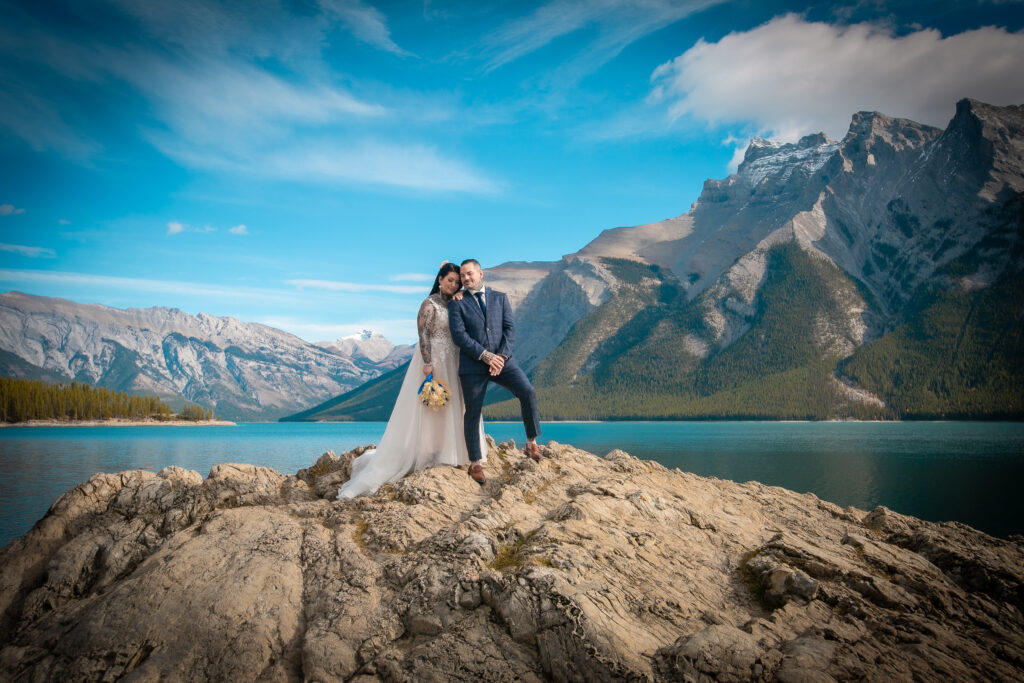Planning an elopement can be a daunting task, but it doesn’t have to be. In this article, we will provide a bride’s guide to planning the perfect elopement. Whether you’re considering eloping for the simplicity of it all or you just want a more intimate ceremony, we’ve got you covered.
The guide will cover legal considerations such as where to get married, legal requirements for getting married in another country, and the different laws and regulations for getting married in each state. Additionally, we will explore planning your elopement, including what to wear, how to transport your dress, and hair and makeup considerations. Finally, we will discuss photography and videography options to capture your special day.
Reasons to Elope
Eloping can be a great option for couples who want to avoid the stress and expense of a traditional wedding. Here are some reasons why:
- Affordability: Eloping can be significantly cheaper than a traditional wedding. Couples can save money on venue rental, catering, and other expenses.
- Flexibility: With eloping, couples have the freedom to choose when and where they want to get married. They can plan their elopement around their schedules and preferences.
- Intimacy: Eloping allows couples to have a more intimate and private ceremony. They can focus on their love for each other without the distractions of a big wedding.
- Less planning: Planning a wedding can be stressful and time-consuming. Eloping requires less planning and preparation, which can be a relief for some couples.
- Travel: Eloping can be an opportunity for couples to travel to a new and exciting location. They can choose a destination that holds special meaning to them or simply a place they’ve always wanted to visit.
- Avoiding family drama: For some couples, family drama can be a major source of stress when planning a wedding. Eloping can be a way to avoid these conflicts and focus on the couple’s relationship.
- Second marriages: For couples who have been married before, eloping can be a way to avoid the pressure and expectations that come with a traditional wedding.
- Environmental impact: Traditional weddings can be wasteful and have a large carbon footprint. Eloping can be a more eco-friendly option for couples who are conscious of their impact on the environment.
Overall, eloping can be a great option for couples who want to prioritize their relationship and avoid the stress and expense of a traditional wedding.
Legal Considerations
Marriage Location Choices
When planning an elopement, one of the first things to consider is the location of the marriage. Couples can choose to get married in the state they reside in, another state, or even another country. However, it is important to note that laws and regulations vary from country to country and from state to state. For instance, in Spain, one or both partners must have been a citizen of Spain for at least two years prior to the marriage. Therefore, it is essential to research the laws of the country where the couple plans to get married. In some cases, it may be advisable to get married in the couple’s home state and then have a ceremony abroad to avoid legal complications.
Understanding Local Laws
It is important to understand the local laws and regulations of the state and county where the couple plans to get married. Some states require an officiant and at least one witness to get married, while others allow couples to self-solemnize. The eight states in the United States where it is legal to self-solemnize are California, Colorado, Illinois, Maine, Nevada, Wisconsin, Kansas, and Pennsylvania. However, it is crucial to note that laws and regulations vary from state to state, and couples should research the laws of the state and county where they plan to get married.
Marriage Certificate Timelines
Once the couple has decided on the location of the marriage, they need to figure out how to obtain the marriage certificate. It is important to note that the timeline for obtaining a marriage certificate varies from state to state. For example, in California, the marriage license is effective for 90 days, while in Colorado, it is only effective for 35 days. Therefore, couples should research the laws and regulations of the state and county where they plan to get married and obtain the marriage certificate accordingly. They can visit the county clerk’s website in the county where they plan to get married to obtain more information.






Planning Your Elopement
Attire Selection
One of the most exciting parts of planning an elopement is selecting the attire. The bride should consider whether she wants to wear a dress, and if so, what color and style. It’s recommended to make an appointment at a bridal boutique to try on dresses and find the perfect one. The groom should also consider what he wants to wear, whether it’s a tuxedo or a more casual outfit like jeans.
Transporting Wedding Attire
Transporting wedding attire can be a stressful task, especially if flying is involved. It’s recommended to use hard-shelled luggage and carry the wedding attire in a carry-on bag. Rolling the dress instead of folding it can help prevent wrinkles. It’s also recommended to bring a steamer to the hotel to remove any wrinkles that may have occurred during travel.
Hair and Makeup Decisions
Deciding on hair and makeup for the elopement can be a daunting task, especially for those who are not experts in the field. Some brides choose to have their hair and makeup done at a salon like Ulta or Sephora, while others opt to do it themselves. It’s recommended to do a few trials beforehand to ensure the desired look is achieved. If hiring a hair and makeup artist, it’s important to research and view their work beforehand to ensure satisfaction.
Trackbacks/Pingbacks